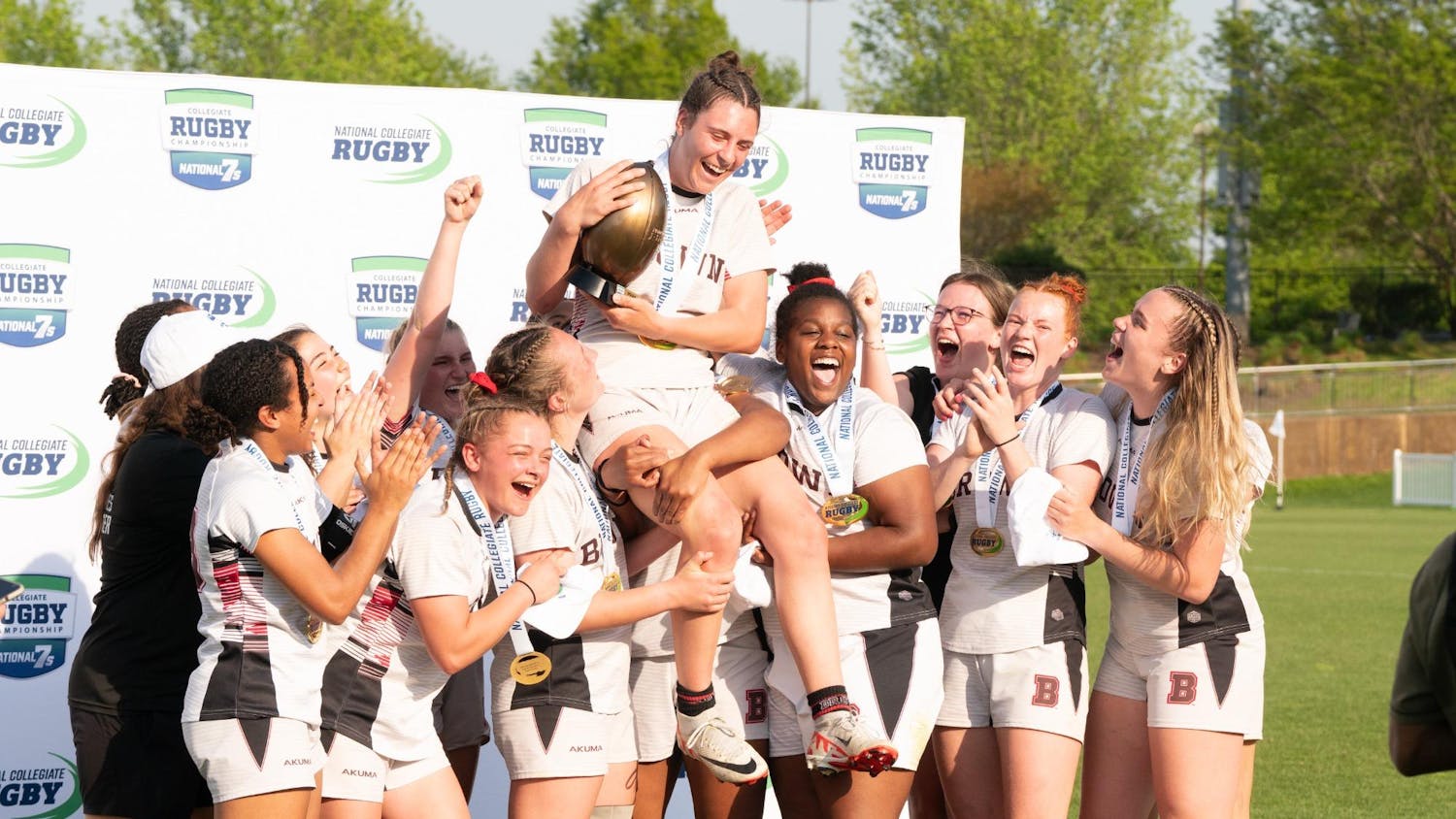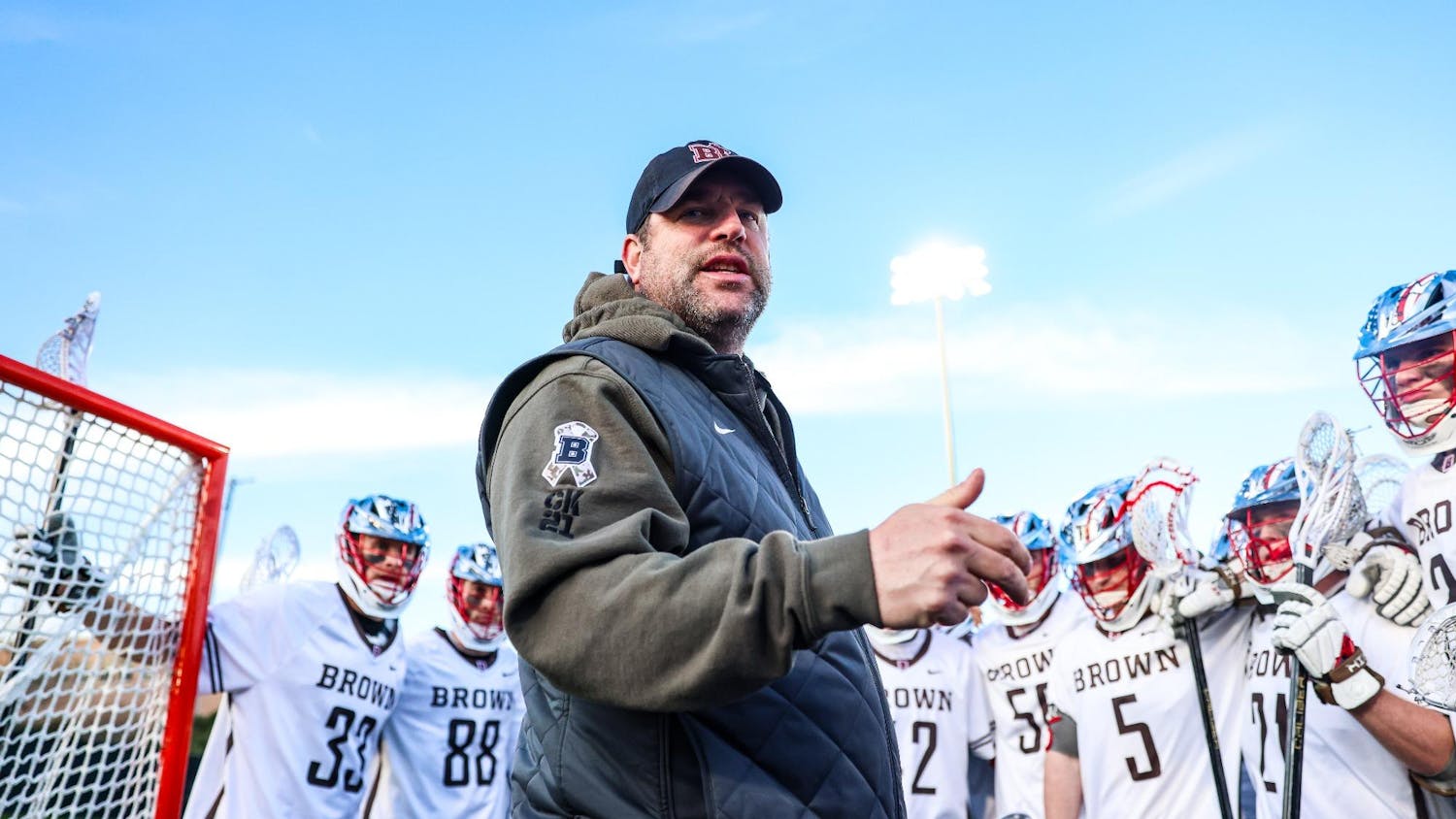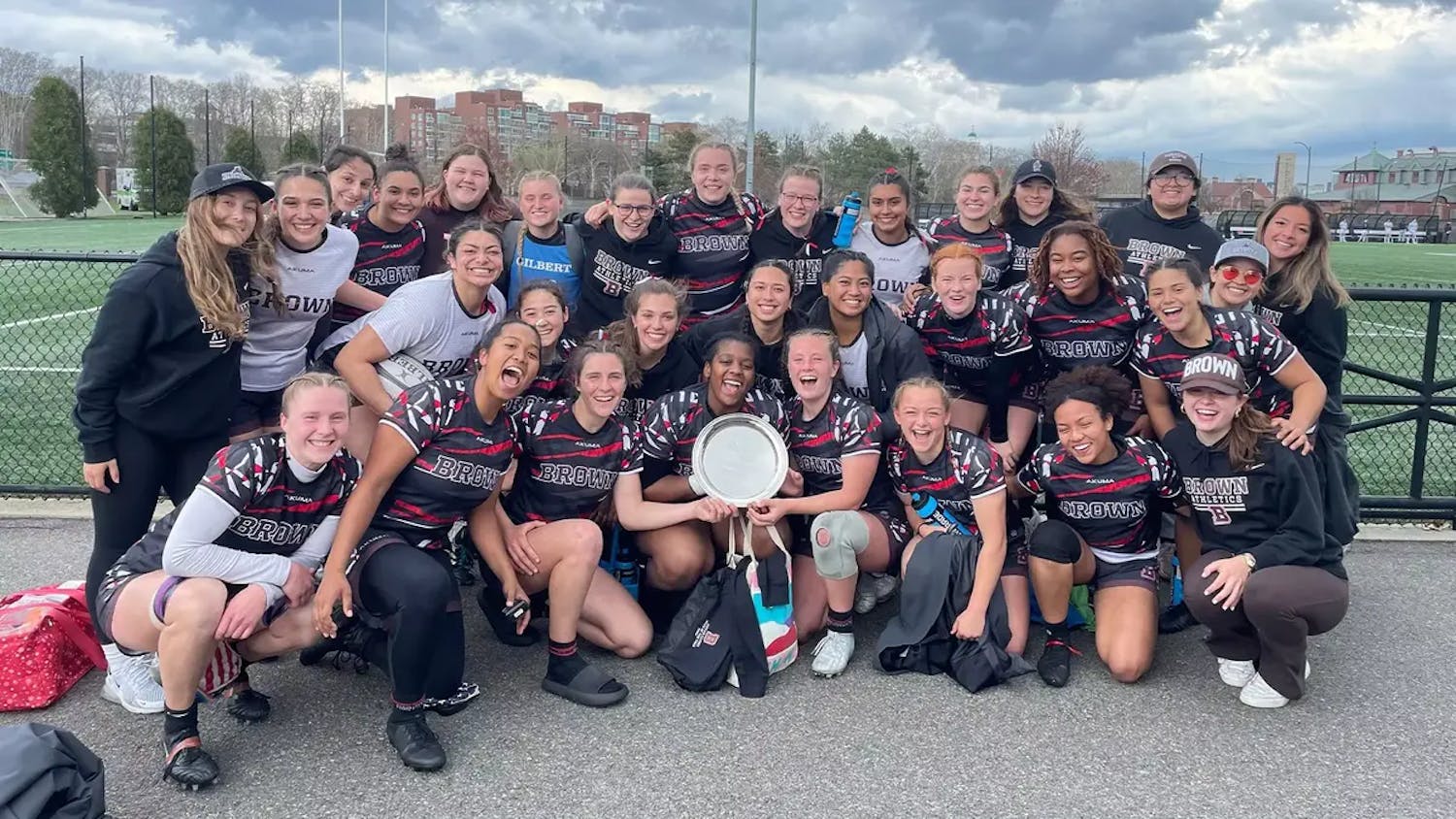Former Brown basketball captain Patrick Lynch '87 waited in the Roosevelt Room of the White House for President Barack Obama.
Lynch, now the attorney general of Rhode Island, was in Washington in March to meet with Obama and a group of attorneys general from around the country. When Obama walked in, the president first greeted those he knew best, starting with the attorney general from his home state, Illinois. The atmosphere was formal, but then Obama approached Lynch.
"He came around to me, stops and says, ‘How's your game?' which changed the tone of everything else," Lynch recalled a day later. "I laughed. I said, ‘I'm working on it.' "
Lynch's basketball days at Brown ended over two decades ago, but his life has been intertwined with basketball ever since.
In the years since he walked out of the Van Wickle Gates, Lynch has volunteered in an effort to mend the Catholic-Protestant struggle in Northern Ireland, practiced law in the private sector, prosecuted the mafia and run for office — first for attorney general, and now for governor. But through all of the twists and turns, Lynch never stopped being a basketball player, either in practice or in mindset.
Ending a centuries-old divide
After finishing second in the Ivy League in scoring his senior season, the 6-foot-5-inch Lynch — whom former Brown Head Coach Mike Cingiser '62 P'85 P'89 said was "probably the best shooter I ever coached" — headed to Northern Ireland to play professional basketball for two years.
But while earning his paycheck playing basketball, Lynch began his lifelong balance between the game and service. He became the first volunteer in a program called Sports Corps, designed after the Peace Corps.
At the time, every aspect of Northern Irish society was divided between Protestants and Catholics, Lynch said. Protestants lived in certain neighborhoods, and Catholics lived in others. Protestants played rugby, and Catholics played soccer.
"The communities are literally divided by corrugated steel fences that are wall-high, 15 feet high," Lynch said. "You would go into some of those neighborhoods, you would see kids, and they would be taking rocks and bottles and they would be saying bad things about the people on the other side. And they can't even see them. It's just perpetuated generationally because they're supposed to hate the other side. And so our concept was to cut through that."
How? Basketball.
Since the sport had only become popular in Northern Ireland in the 1980s, the deep-rooted divisions between Protestants and Catholics that divided other sports had not yet laid claim to basketball. So Lynch took kids from Protestant neighborhoods and kids from Catholic neighborhoods and put them on the same basketball teams.
"I tried to bring them together to get them to play with each other, intermingling on teams to create some conversations to help illustrate to them that you're not that different from these kids and decrease the hate," Lynch said.
While in Northern Ireland, Lynch never lost his focus on his career after basketball. He said he knew he wanted to be a lawyer, so he studied law at Queen's University of Belfast, in addition to playing pro basketball and working with the Sports Corps.
He eventually graduated from Suffolk University Law School in 1992 after he returned to the U.S. Following a yearlong second stint playing professionally in Ireland, Lynch turned pro in law.
From court to courtroom
Lynch took the competitive spirit he developed on the court with him into the next focus of his life, law. He said his competitiveness made a career in prosecution tempting.
He longed for moments like when he stepped up to the free-throw line at Penn's arena, the Palestra, in one of the biggest games of his junior year. The stands were packed with Quakers fans — all yelling at him. He had to maintain focus, step up in the clutch and hit the free throws. A picture still hangs in his office of him holding his follow-through after that shot, the ball swishing through the net.
As a criminal prosecutor in the Rhode Island Department of the Attorney General, Lynch faced opponents far more intimidating than the Ivy Leaguers he used to go up against. He faced drug dealers, murderers and mafia members before being elected head of the office in 2002.
Just 40 days into his first term, the Station nightclub in West Warwick burned to the ground, killing 100 people and leaving Lynch in charge of prosecuting those at fault in the fourth-deadliest fire in American history.
During the press conference immediately after the tragedy, Lynch stepped up to the podium. His office was packed with national reporters — all yelling questions at him. He had to maintain focus, step up in the clutch and answer the questions.
"It was the same thing as standing at the free-throw line at the Palestra," Lynch said. "It's like, ‘What is my role here? What is the game plan?' The plan is to not say something that would injure a defendant's rights but give enough information to try to give some comfort to the victims."
Hoops friends on College Hill and another in the White House
The parallels between leading an attorney general's office and leading a basketball team go beyond that one press conference. Lynch said he sees similarities between the two on a daily basis and often uses what he learned from basketball in his new role. But looking back on his days at Brown, it's not the game memories that he cherishes most, he said.
"The friendships that you develop in sports are probably what I reflect on more, now that so many years have passed," Lynch said.
They were friendships forged in one improbable Ivy League championship season in 1986 and friendships that have lasted decades.
Lynch said he recently saw three of his old teammates — who still tease him for not having passed to them enough — when they threw him a fundraiser in New York City for his gubernatorial campaign.
"When you're playing in college and you're 20 years old, you don't necessarily say, ‘Wow, this guy could be the attorney general or the next governor in the state of Rhode Island,' " said Jim Turner '86, Lynch's former teammate. "But if you asked us, we certainly would have said, ‘Yeah, we could see it because of what he brings to the table on the basketball court. You put that into the court of law, put it into the political arena. Why wouldn't he have the same success in those fields as he has on the basketball court?' "
Basketball has also allowed Lynch to forge relationships with others, besides just teammates. He befriended Craig Robinson — now the Oregon State men's basketball coach — when Robinson was coaching at Brown from 2006 to 2008. Robinson introduced Lynch to his brother-in-law, then a young, basketball-playing senator from Illinois named Barack Obama. Lynch later became one of the first politicians in Rhode Island to endorse Obama.
"I saw in him, maybe an athlete, but more so, just a real person that I got to meet through a person I admired," Lynch said.
The relationship has continued, and after the attorneys general met with Obama, one of the president's aides approached Lynch and told him he should come down to Washington more. Lynch said he did not want to bother the president, but when pressed by the aide, he said there were two things he would really love: to have a full tour of the White House with his kids and to play basketball with the president.
When asked if he would have to change his game if he played with Obama, Lynch said he wouldn't be able to change too much.
"My real struggle — if anyone knows anything about my game — is that, if we were on the same team, I don't know if I would pass to him."<
br />
Lynch has always been a basketball player, and even politics can't change that.
ADVERTISEMENT




